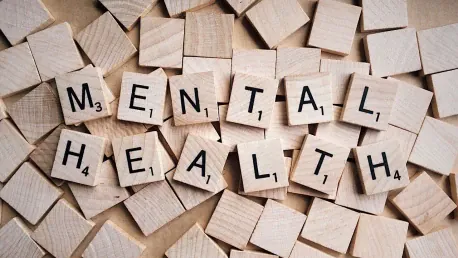Kenya is currently facing a troubling increase in suicide rates, which has sparked a vital conversation about the nation’s mental health landscape and the need for legal and societal reforms. Over the past four years, a staggering 1,576 suicide deaths have been reported, a grim statistic highlighted by both the Kenya National Bureau of Statistics (KNBS) and the National Police Service (NPS). With the observance of World Suicide Prevention Day 2024, the Kenya National Commission on Human Rights (KNCHR) is urging for immediate actions to tackle mental health challenges and push for the decriminalization of attempted suicide. Aligning with this year’s theme, “Changing the Narrative on Suicide,” and the rallying cry “Start the Conversation,” the KNCHR emphasizes the necessity of open dialogue to combat this crisis effectively.
The Stigma and Statistics of Suicide
The Challenge of Criminalization
The KNCHR stresses that criminalizing suicide attempts only exacerbates the problem, making it difficult for those in crisis to seek help due to fear of legal repercussions. Many suicide attempts go unreported in Kenya, largely because attempted suicide is considered a criminal offense. This legal stance contributes to an underreporting of cases, suggesting that the actual scope of the crisis could be far more severe than the current statistics indicate. The organization highlights that Kenya is one of about 20 African nations that still criminalize attempted suicide, a policy they argue has failed to reduce suicide rates. Instead, they advocate for a comprehensive approach that includes accessible mental healthcare and economic support, thereby addressing the root causes of mental distress.
The Global Context and Local Reality
According to the World Health Organization (WHO), suicide is the fourth leading cause of death among individuals aged 15 to 29 globally, with an estimated 703,000 suicides occurring each year. In Kenya, suicides represent a microcosm of this global issue but are compounded by local factors such as cultural stigma and inadequate mental health services. The higher incidence among the youth calls for urgent reforms in mental health policies and practices to safeguard this vulnerable age group. The KNCHR underscores the need to build robust support systems that can provide timely interventions and foster a judgment-free environment for those affected by mental health issues.
Legislative and Cultural Pathways to Reform
Recent Legal Developments
In the quest for a more compassionate approach to mental health, Kenya has made some strides with legislative changes. Notably, the Mental Health (Amendment) Act of 2022 is a progressive step towards recognizing the need for affordable mental health care, counseling, and rehabilitation for individuals experiencing suicidal thoughts or behaviors. This legislation is aimed at promoting a more humane and supportive approach to mental health issues, stressing the importance of accessible care and community support. Additionally, the 2023 Statute Law (Miscellaneous) Amendments Act reflects a shift in legal language that is more compassionate towards individuals with mental illnesses, signaling a gradual but significant change in the country’s legal framework.
Awaiting a Landmark Court Decision
A pivotal moment in Kenya’s mental health legislation is expected in November 2024, with a High Court decision that could potentially repeal Section 226 of the Penal Code. This particular section criminalizes attempted suicide, and its repeal would be a monumental step towards destigmatizing mental health issues across the nation. The KNCHR and other advocacy groups argue that such a legal change could redirect the focus from punitive measures to supportive interventions, fostering an environment where individuals feel safe to seek help without fear of legal consequences. The anticipated legal reform complements ongoing efforts to improve mental health services and create a cultural shift towards openness and support.
Building a Supportive Community
Enhancing Access to Mental Health Services
The increase in suicides highlights an urgent need for Kenya to enhance access to quality mental health services. The KNCHR has called upon the government to invest in mental health infrastructure, ensuring that services are not only available but also affordable and accessible to all segments of the population. The emphasis on building robust support systems is a call to action for both governmental bodies and civil society organizations. These systems should include crisis intervention, continuous counseling, and long-term mental health care to address the various facets of mental health issues comprehensively.
Fostering Open Dialogue and Community Support
The higher suicide rate among youth highlights the urgent need for mental health policy reform to protect this vulnerable age group. The KNCHR emphasizes the necessity of establishing robust support systems. These systems should provide timely interventions and create a nonjudgmental environment for individuals dealing with mental health issues. Furthermore, integrating mental health education into schools and communities can help to break down stigma and encourage open dialogue. Addressing these issues is crucial for reducing suicide rates and improving overall mental well-being, requiring coordinated efforts from government agencies, healthcare providers, and community organizations.









